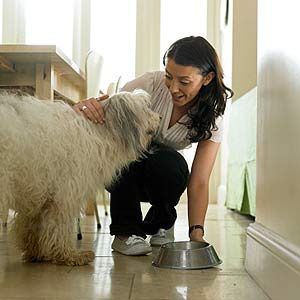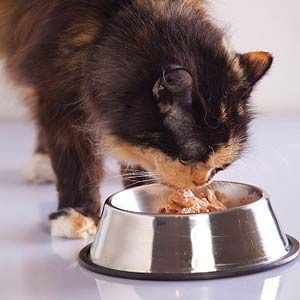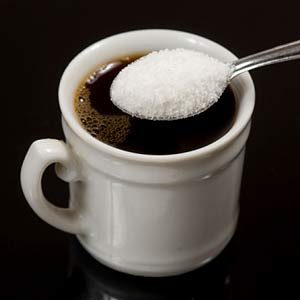What’s worse for your pet, artificial sweetener or sugar? How much damage can a few sips of alcohol really do? How healthy is it to make your pet’s meals? Click below to learn the truth behind these and other strange pet food myths, and debunk some common (and dangerous) misconceptions among pet owners

Preparing Your Pet’s Meals is Better for Them
In the wake of the pet food recalls in 2008, the American Veterinary Medical Association (AVMA) issued a statement saying, “The AVMA does not recommend that people attempt to prepare home-cooked meals for their pets because pet nutrition is very complicated and unique to species and individual animals.” One AVMA expert added, “Commercial pet foods are thoroughly tested. I don’t know of any homemade recipes for pets that are put through tests before they are marketed.”
(Photo courtesy of Thinkstock)

Store-bought Food Makes Your Pet Gassy
Feeding your pet soybeans, peas, beans, milk products, or fatty or spicy foods commonly causes flatulence. Dairy products are especially a problem, because adult dogs and cats are lactose intolerant and often experience digestive upset and flatulence when given milk, cheeses, or similar foods.
(Photo courtesy of Thinkstock)

‘Natural’ and ‘Organic’ Pet Foods are the Same
Organic foods are a subgroup of natural foods. In other words, all organic foods are natural, but not all natural foods are organic. To be considered organic, a food must comply with standards established by federal laws. If a pet food is labeled “natural,” it cannot contain artificial colours, artificial flavours, artificial preservatives, artificial fats, or any other artificial ingredient — but it does not mean unprocessed or unrefined. Basically, as long as it comes from nature and not a chemical plant, an ingredient is considered “natural.”
(Photo courtesy of Thinkstock)

It’s OK for Your Pet to Drink With You
Depending on how much alcohol your animal ingests, it can lead to vomiting, diarrhea, depression, difficulty breathing, coma, and possible death.
(Photo courtesy of Thinkstock)

Cat Food With Fish is the Same as Tuna Cat Food
If a pet food label contains the word “with” in its product name, there only has to be 3% of that product – not 95% or 25% – in the package. For example, while a product called “Tuna Cat Food” must contain 95% tuna, a product labeled “Cat Food with Tuna” only has to contain 3% tuna. So, it’s important to read the label carefully.
(Photo courtesy of Thinkstock)

Sugar is Worse Than Sweetener
While sugar is not good for your pet, sweetener is even worse. Xylitol — a sweetener used in many products including mouthwash, chewing gum, toothpaste, and various foods — is toxic to pets, and products containing xylitol should not be given to your dog or cat.
(Photo by Thinkstock)